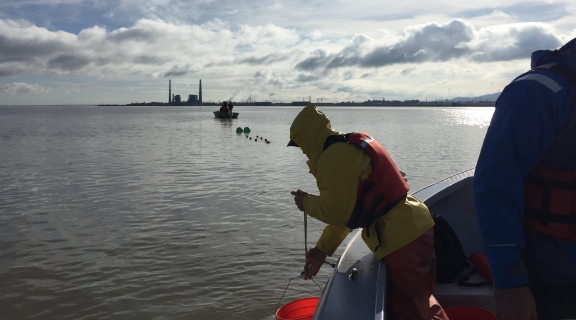
Rosenberg Institute Seminar Series - Anne Holmes
Overview
Operationalizing environmental DNA for conservation and management across estuary, wetland, and coastal ecosystems management across estuary, wetland, and coastal ecosystems
Ann Holmes, Ph.D. Candidate, U.C. Davis
Science-based management in the San Francisco Estuary watershed requires significant monitoring efforts targeting taxa across diverse habitats. Environmental DNA (eDNA) detection has generated significant interest for monitoring because it’s highly sensitive and non-invasive. Despite these advantages, eDNA approaches are still relatively new and the full capabilities have yet to be realized. Research across different systems informs how eDNA can be operationalized for conservation and management. First, I discuss field surveys targeting delta smelt that led to a better understanding of eDNA in a dynamic environment. Then, I describe eDNA sampling as a whole-ecosystem monitoring approach for Putah Creek native fishes benefiting from environmental flows. Finally, I highlight bat ecosystem services in Yolo Bypass wetlands using guano sampling. Collectively, these studies demonstrate how optimized methods and informed data interpretation provide a framework for integrating a suite of eDNA technologies into conservation, management, and biodiversity surveillance.
I am a Ph.D. Candidate in Ecology at U.C. Davis conducting conservation genetics research in the Genomic Variation Lab. My work applies non-invasive genetic methods to conservation and management questions involving endangered species, biodiversity, and food webs in aquatic and wetland ecosystems. I enjoy working with undergraduate researchers and Scuba diving. I have a B.A. in Biology from Cornell University and an M.S. in Biology from San Francisco State’s Estuary & Ocean Science Center.